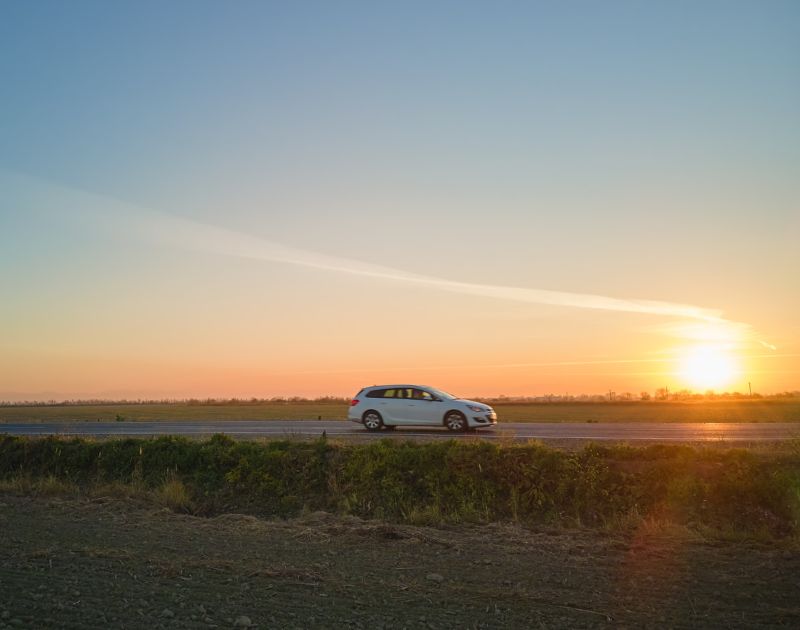 For many college students, spring break is the highlight of the semester. It's a chance to unwind, reset, and take a much-needed break from classes. Whether you plan a quick trip to a neighboring state or a week-long getaway at the beach, remember to be cautious while traveling. To ensure you have a fun and safe time on vacation, here’s a list of spring break safety tips to keep in mind.
For many college students, spring break is the highlight of the semester. It's a chance to unwind, reset, and take a much-needed break from classes. Whether you plan a quick trip to a neighboring state or a week-long getaway at the beach, remember to be cautious while traveling. To ensure you have a fun and safe time on vacation, here’s a list of spring break safety tips to keep in mind.
1. Inform others of your plans
Before leaving town, inform a family member or close friend of your plans and share your itinerary with them. Sharing your trip details with a trusted individual can help ease any worries about your whereabouts and allow them to be part of your journey. It's always better to err on the side of caution and keep your loved ones updated on your location in case something goes wrong.
2. Update your vaccines
If you’re traveling abroad, you should check if any of your vaccinations need to be renewed. With up-to-date vaccinations, you are better protected from preventable diseases and illnesses while traveling. Visit the Center for Disease Control and Prevention (CDC) for travel tips and other health-related suggestions about your spring break destination.
3. Be mindful of local laws
Make sure to research the local laws of your destination. If you’re just crossing state lines, you likely won’t see any major legal differences. However, other countries may have laws that vary greatly from the United States. In addition, you should try to familiarize yourself with the informal rules and customs of your destination to demonstrate respect and prevent unintentional misunderstandings.
4. Protect yourself from identity theft
Traveling can increase your chances of identity theft and credit card fraud, so you should take steps to protect yourself. Before leaving, make sure to notify your bank or credit card company about your travel arrangements. This allows them to keep an eye on your account for any suspicious transactions. Additionally, be cautious when connecting to public Wi-Fi, as your data may be vulnerable to hackers seeking to steal your personal information.
5. Leave your valuables at home
Avoid bringing valuable items, like watches, jewelry, or a nice camera, with you on trips if you can help it. These expensive or sentimental items can easily become lost, damaged, or stolen. Give yourself peace of mind by leaving them at home. If you must bring your valuables, keep them in your sight at all times or secure them in your hotel safe.
6. Bring copies of your documents
When traveling, you’ll carry your passport, driver's license, or other important documents around with you. In case you ever lose or misplace one, it’s smart to also have copies of those documents as a backup plan. Additionally, consider keeping a physical copy of important addresses and emergency numbers, in case your phone runs out of battery or gets lost.
7. Avoid first-floor hotel rooms
Although it may seem like a minor detail, choosing a higher floor hotel room can make a significant difference in your safety while traveling. Since first-floor rooms are on the ground level, it is generally easier for thieves to break in. When making your travel plans, consider requesting a room on the second floor or higher to enhance your safety.
 8. Drive safely
8. Drive safely
When traveling with friends, it's easy to get sidetracked by music or deep conversation. However, staying focused and attentive on the road is important. To ensure your safety, take turns driving and never let the driver stay up alone. Additionally, plan your route ahead of time and be sure to have a map or GPS handy.
9. Use the buddy system
Never wander off alone when traveling, and have a trusted buddy with you at all times. Staying with at least one member of your group is the best way to protect yourself from crime or pickpocketing. Not only will you be safer with a friend or group, but you’ll also get to share the experiences of exploring or engaging in activities together.
10. Have a safety code word
When you’re planning your trip, you should also plan ahead for potential safety concerns. One strategy is to create a code word with your friends, which can be used to signal that someone is feeling uneasy or unsafe in a particular location. Whether your code word is “purple panda” or something a little more discreet, these code words alert you to quickly remove yourselves from any uncomfortable situations.
11. Watch your surroundings
If you are used to traveling with your parents, you may not be used to constantly scanning your surroundings. It's extremely important to keep a high level of awareness while traveling. Plus, spring break is a busy time of year for many popular destinations, and crime rates may increase in those areas. Pay attention to suspicious streets, vehicles, and people around you to ensure your safety.
12. Take health precautions
It's important to be cautious of contaminated food and water sources while traveling. Be skeptical of street vendors, and do some research before visiting local restaurants. Look for places that have water filtration systems and comply with updated health codes. Lastly, don't forget to practice good personal hygiene by washing your hands frequently.
13. Stay hydrated
When you’re exposed to high temperatures and sunlight for extended periods of time, dehydration can occur quickly. Drinking plenty of water is key to feeling your best. The risk of dehydration may be greater in warmer climates, but staying hydrated is important no matter where you travel.
14. Protect your skin
Whether you choose to relax on a beach or hike a picturesque ridge, you need to protect your skin on spring break. Apply sunscreen daily, and make sure to reapply when necessary. Even when it's cloudy or relatively cool, your skin can still be exposed to high levels of UV rays. When it comes to sunscreen, it's one of those rare moments when peer pressure is acceptable – encourage your friends to protect themselves too.
15. Be smart in the water
No matter how skilled of a swimmer you are, it’s important to be safe in the water. If you're headed for the beach, remember to avoid swimming in the ocean after sunset, as the riptides and strong currents can make it difficult to return to shore. When boating or jet skiing, wear the appropriate life jackets to ensure your safety. Additionally, make sure you are aware of the potential hazards that come with swimming in hot tubs and pools.
16. Don't post in real time
It's likely that you'll capture some amazing shots for Snapchat or Instagram while on vacation. But before you share them with the world, think twice. While you may get a lot of likes and comments, posting vacation photos online can also attract unwanted attention and increase the risk of theft or vandalism while you're away. It's a good idea to wait until you've returned safely home to share any vacation photos.
We hope that these travel safety tips help you enjoy your spring break trip. To make sure your break from school is relaxing, do your research and save for your vacation ahead of time. Most importantly, make lots of memories and stay safe on your getaway from college.
WHAT'S NEXT?✈️After booking your flights with your credit card, check out the other Things You Should Use Your Credit Card For. 🏖️Successfully budgeting for a spring break trip is a huge accomplishment. Inspire your next money move by reading 8 Financial Achievements to Reach for in College. |









.jpg)

.jpg)


